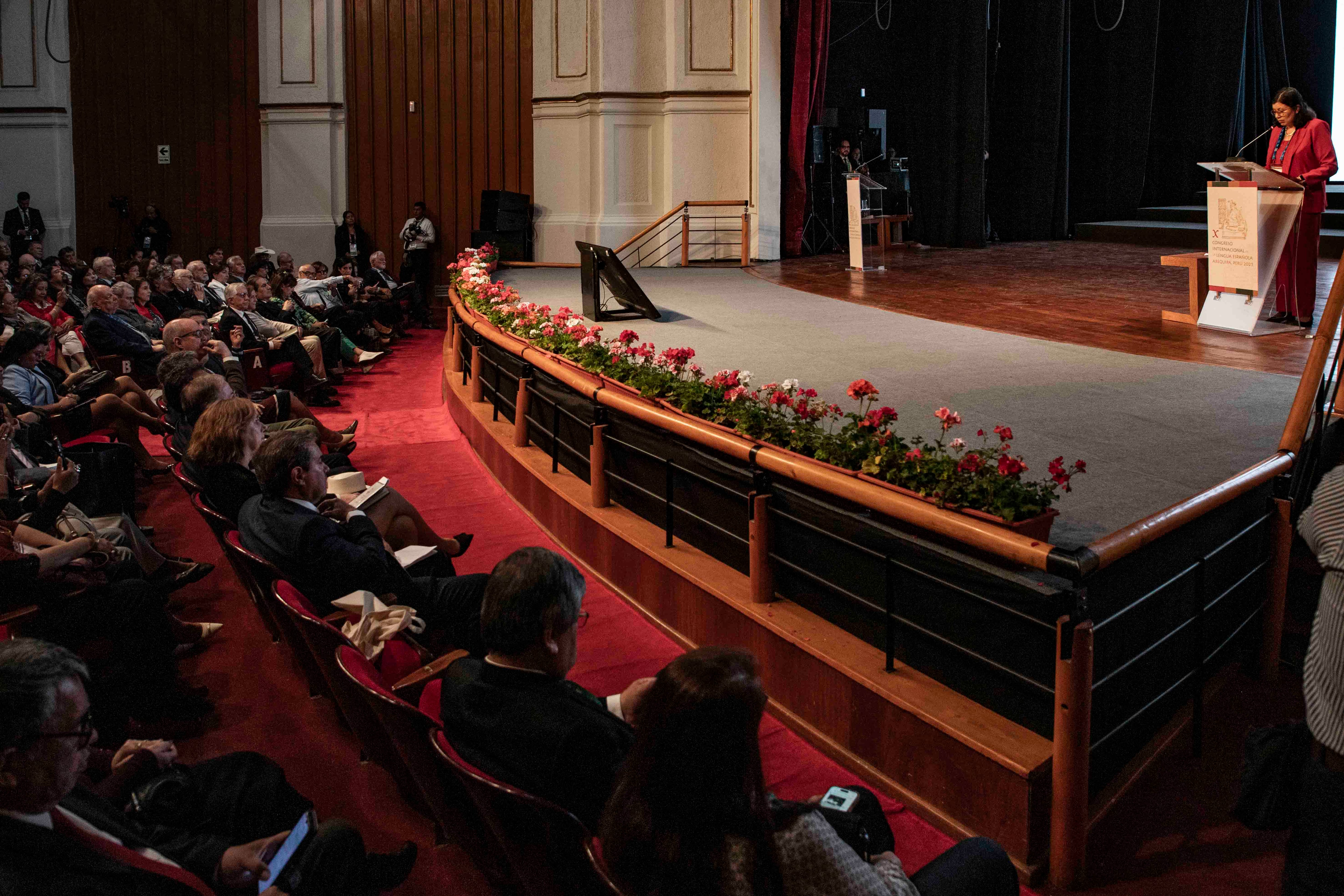The tenth International Congress of the Spanish Language (CILE), which ended this Friday in Arequipa (Peru), has closed without announcing which city will take over in three years, as is usual in the closing session. In closing, the president of the Peruvian Academy of Language, Eduardo Hopkins, alluded to the tensions experienced these days. Hopkins has mentioned that in the months of preparation, organizers sometimes “argued over a round table or an exhibition.” “It was debated because that’s how things are done. It’s discussed, it’s not imposed.”
As for the city that will host the next CILE, it must be remembered that the Association of Spanish Language Academies (Asale), which is 23, including the Royal Spanish Academy (RAE), and the Cervantes Institute must agree on the chosen city, normally a secondary school, not a large capital. However, it seems that the atmosphere experienced by the bitter personal confrontation between the director of Cervantes, Luis García Montero, and that of the RAE, Santiago Muñoz Machado, was not the right moment to address an issue that could generate a new discussion.
In addition, the candidate city must put on the table the money it costs to organize a congress of these characteristics. In this case, the amount from the Peruvian Government, which invited this medium, has exceeded four million euros.
However, even on the last day of the congress there has been a disagreement between the organizing institutions. Hours before the end, Asale has released a statement, from which the RAE has decided to exclude itself, “given the content of the deliberation and the agreement adopted”, which refers to the director of this corporation, Muñoz Machado. He, who also chairs Asale, “has declined to attend the meeting.” It must be remembered that the financial support of Asale is the RAE itself.
The Asale text spells out thanks to authorities and institutions, with the striking absence of the Cervantes Institute, co-organizer of the congress together with the Government of Peru, and which is in charge of the cultural program of this event. The king, Felipe VI, is mentioned: “His commitment once again demonstrates the firmness of his support in everything that concerns the strengthening and unity, within the variety, of the Spanish language in our countries.”
Celebrations for Muñoz Machado
Then the entertainment arrives for Muñoz Machado. The Asale “wants to recognize, very especially, the firm intellectual and cultural leadership developed by” its president, “which is promoting our organization and common work with very varied, enriching and innovative pan-Hispanic actions.” It is added that Asale “unanimously supports its initiative and shares its program of action both at the institutional level and in the numerous projects that we jointly develop to serve the needs of Spanish speakers around the world in the current complex time.”
Finally, the “satisfaction with the work that has been carried out, developed with great benefit in the three thematic areas that have constituted the subject of the deliberations: mestizaje and interculturality, clear and accessible language, digital cultures and artificial intelligence” is expressed.
The general secretary of Asale, Francisco Javier Pérez, also participated in the final session, quoting the Venezuelan writer Andrés Bello: “We all make the language.” Pérez stressed that “the times of purism” in relation to the Spanish language “have fortunately been left behind.” In addition, the general secretary of this CILE and academic director of the Cervantes Institute, Álvaro García Santa-Cecilia; the writer and musicologist Zoila Vega, who jokingly noted that during the days of the congress there had not been one of the usual slight seismic movements in the city: “It would have been a good memory.”
Likewise, the general secretary of the Cervantes Institute, Carmen Noguero; the general coordinator of the X CILE, Alonso Ruiz Rosas, who proposed holding a congress on indigenous languages; the rector of the National University of San Agustín, Hugo Rojas Flores, and the mayor of Arequipa, Víctor Hugo Rivera.
With all the disagreements that have occurred in this CILE, the closing session was grateful for the announcement that of the two prizes that have been given to Arequipa schoolchildren in a contest in which they had to submit a work on their favorite word, one of them was “calm.”

